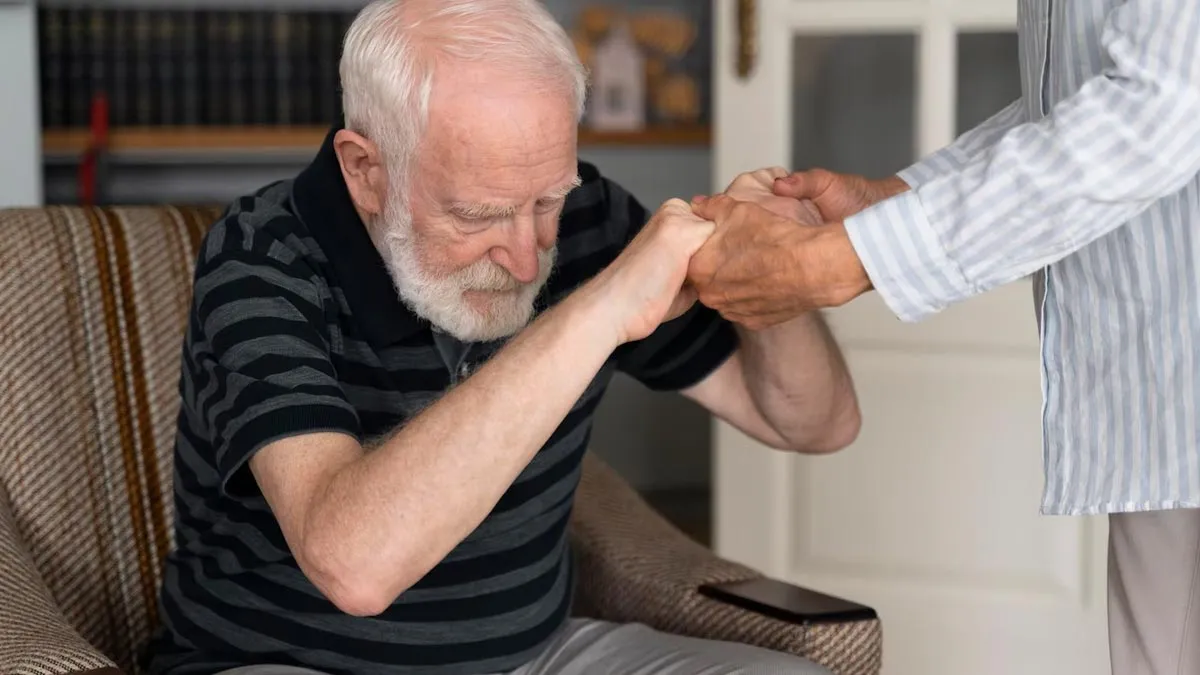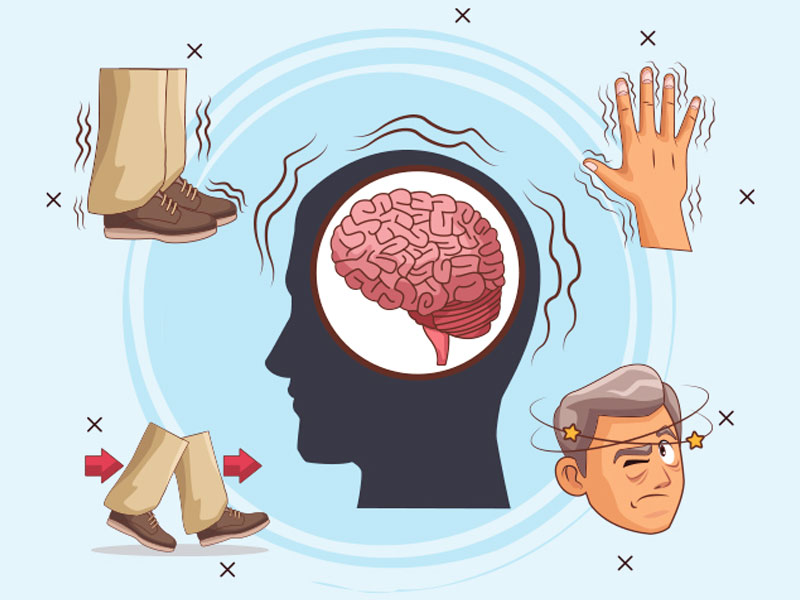
Parkinson's disease is a condition that gradually makes it harder to move because brain cells that make a key movement chemical (dopamine) are lost. Its noticeable signs include shaking or tremors. This chronic neurological disease, though, can manifest itself in many subtle ways, many of which are easily explained away as signs of stress or a normal part of ageing. However, prompt diagnosis is important to improve management and quality of life.
Table of Content:-
Common But Most Ignored Signs Of Parkinson’s Disease
While most people identify the prominent signs and act upon them, it is the less conspicuous signs that cause the most trouble. Hence, we spoke to our expert Dr Shrey Kumar Srivastav, Senior Consultant and General Physician, Sharda Hospital - Noida, and here are the seven frequent yet usually neglected symptoms of Parkinson's disease that you ought to know:
1. Minor Changes in Handwriting (Micrographia)
Do you find your writing becoming smaller and more cramped as time goes by? This is known as micrographia, which is a not-so-obvious but important first sign of Parkinson's. The motor control disturbances in movement may also affect the fine motor control skills needed for handwriting. The occasional sloppy writing is to be expected, but the consistent and persistent shrinking of the size of your writing, particularly the latter half of the words in a sentence, is cause for concern.
2. Loss of Smell (Anosmia)
The sense of smell is something we take for granted too often. A persistent and substantial loss of smell, however, called anosmia, can be an early, non-motor sign of Parkinson's. It is not simply a transient stuffy nose but a true inability to perceive or distinguish odors, even potent ones. Ironically, this symptom can occur years earlier than the more traditional motor signs.

Also Read: What Is High-Functioning Depression? Expert Shares How To Differentiate
3. Sleep Disturbances (REM Sleep Behavior Disorder - RBD)
If you experience vivid acting out of your dreams while sleeping, this may be in the form of talking, screaming, punching, kicking, or even falling off the bed. This is indicative of REM Sleep Behavior Disorder (RBD), where the usual paralysis of the muscles during REM sleep does not occur. RBD has a very strong correlation with an elevated risk of Parkinson's disease and other neurodegenerative diseases. Although not all patients with RBD will get Parkinson's, it is a red flag to consider discussing with a physician.
4. Constipation
Gastrointestinal problems, especially chronic constipation, are surprisingly prevalent in the early phases of Parkinson's. The illness may impact the autonomic nervous system, which regulates involuntary body functions such as digestion. If you have new or worsening constipation that is not due to changes in diet, it's worth considering as a possible early indicator, particularly if combined with other subtle changes.
5. Changes in Voice (Hypophonia)
Parkinson's can impact the muscles that control speech, resulting in a softer, more monotone voice (hypophonia). So if you talk too softly or mumble, listen if your voice doesn't seem to have its normal volume or inflection. Note that this may be gradual and easily overlooked and often blamed on shyness or just getting older.

6. Masked Face (Hypomimia)
Facial expressions tell a great deal about our feelings. Early in Parkinson's disease, people might have a decreased capacity to display facial expressions, also known as "masked face" or hypomimia. The face is less expressive, even if the person is experiencing feelings. This might, at times, be misunderstood as withdrawal or not being interested.
Also Read: What Is High-Functioning Depression? Expert Shares How To Differentiate
7. Stooped Posture and Balance Problems
Though extensive balance issues tend to be common in the later years of Parkinson's, slight alterations in posture can show up sooner. You may experience a leaning-forward tendency when simply standing or find that you stoop ever so slightly at the shoulders. Such slight alterations in posture can set the stage for more prominent balance issues.
Why Early Detection is Important
“Although there is no cure for Parkinson's disease at present, early diagnosis enables timely treatment with medications and therapies that can control symptoms and enhance quality of life,” highlighted Dr Srivastav. Identifying these frequently overlooked signs can enable individuals to get medical help earlier, which may result in earlier treatment or access to resources and support
What to Do If You See These Signs
“It's essential to note that noticing one or two of these symptoms doesn't always equate to having Parkinson's disease. Yet, if you experience a combination of these, or if any of these changes are new, persistent, or getting worse, it's vital to discuss them with your doctor. He or she can perform a full neurological exam and, if needed, refer you to a neurologist with expertise in movement disorders for additional testing,” warned Dr Srivastav.
Bottomline
Don't brush off these seemingly subtle changes as a normal part of ageing. Being proactive and knowledgeable about the subtle warning signs of Parkinson's disease can make a big difference in your health process. Listen to your body, believe in your instincts, and don't delay medical consultation if you suspect something. Early awareness is the first step to improved management and a brighter tomorrow.
Read Next
Real Coconut Water vs Packaged Scam: Here Is How The Sugary Chemical May Harm Your Overall Health
How we keep this article up to date:
We work with experts and keep a close eye on the latest in health and wellness. Whenever there is a new research or helpful information, we update our articles with accurate and useful advice.
Current Version